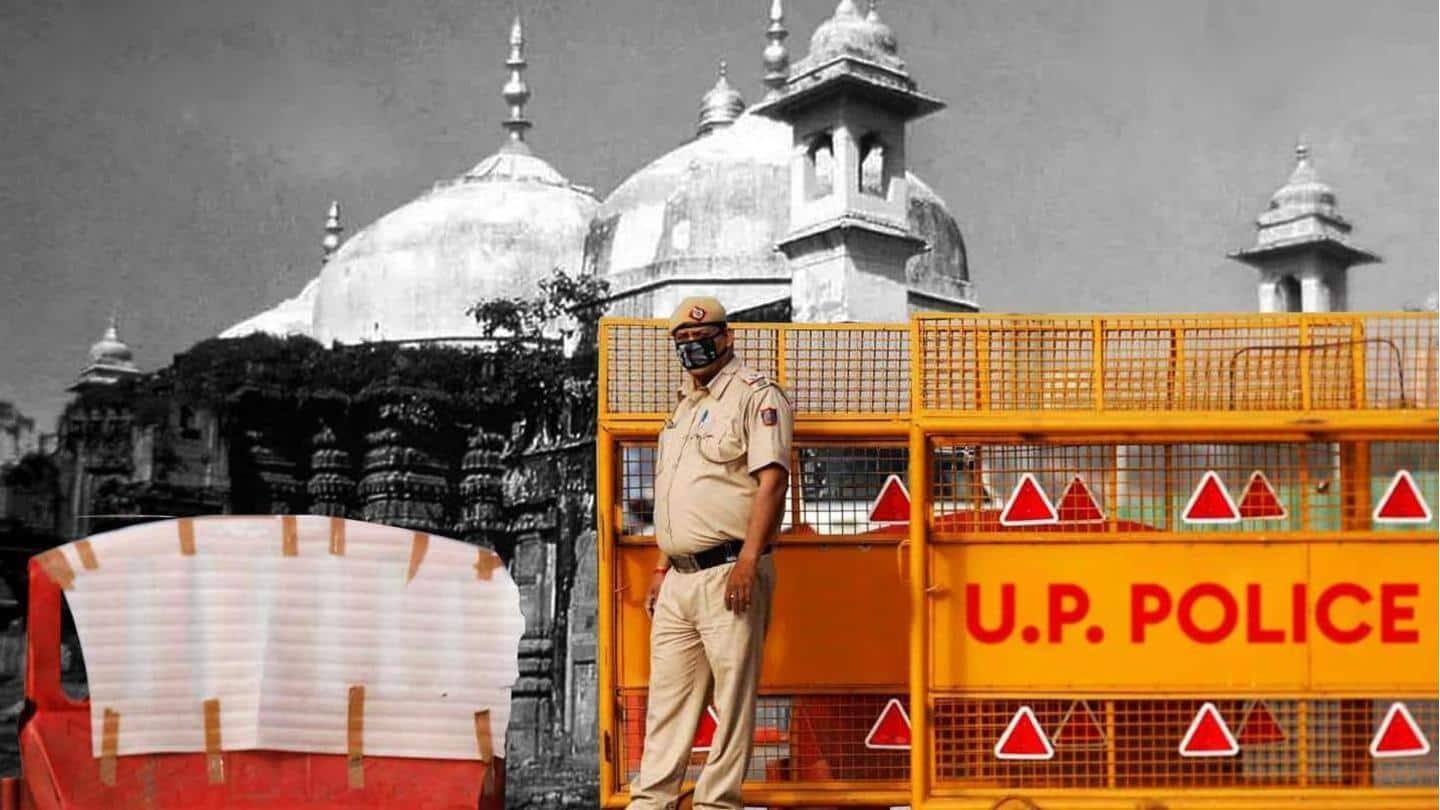
Gyanvapi Mosque case ruling today, Section 144 imposed in Varanasi
What's the story
The Varanasi district court on Monday is expected to announce its verdict on the maintainability of the plea filed by five Hindu women seeking the right to worship Maa Shringar Gauri inside the Gyanvapi Mosque premises. Security is tightened in Varanasi with Section 144 imposed in view of the communally sensitive matter. Checking has been intensified on the district borders, hotels, and guest houses.
Context
Why does this story matter?
A Varanasi court had ordered to seal the spot after a Shivling was allegedly found inside the Gyanvapi complex. However, the mosque management claimed it was part of the wazukhana's fountain. Later, the Supreme Court ordered the authorities to protect the area without hindering Muslims' access to namaz. It asked the local court to decide on the 'maintainability' of the videography and survey petition.
Security
City divided into sectors, sensitive areas to be foot-patrolled
Officers have been directed to talk to religious leaders in their respective areas, said Varanasi police commissioner A Satish Ganesh. To preserve law and order, the city has been divided into sectors and assigned to police teams. Police will foot-patrol sensitive areas and have issued directives for foot marches and flag marches apart from keeping a tab on social media.
Twitter Post
'Places of Worship Act, 1991 in our favor'
Gyanvapi mosque case | Today the court will deliver its judgment on the maintainability of the suit. 1991 Worship Act applies in our favour. If judgment comes in our favour, then we'll seek for ASI survey, carbon dating of Shivling: Adv VS Jain, representing Hindu side
— Hindustan Times (@htTweets) September 12, 2022
(ANI) pic.twitter.com/iZw8QMU4Z6
Background
Delhi-based Hindu women had filed the plea in 2021
To recall, in April 2021, five Delhi-based women had sought permission from a Varanasi court for year-long, daily worship of deities Shringar Gauri, Lord Ganesh, Lord Hanuman, and Nandi in the mosque complex. Currently, devotees are allowed to worship Shringar Gauri only on the fourth day of Chaitra Navratri. Later, in April 2022, the court ordered a survey and videography by an advocate commissioner.
Case after survey
SC transferred the case to district court
During the survey, the court-appointed videography team allegedly found a Shivling in the Gyanvapi Mosque complex and submitted its final survey report to the civil court on May 19. Later, the Supreme Court transferred the case from civil judge Diwakar to District Judge AK Vishvesh on May 20. It was done after taking into consideration the "complexities" and "sensitivity" of the issue.
Waqf
Mosque committee invoked Places of Worship Act, 1991
The current plea was filed by the Anjuman Intezamia Masajid's (AIM) managing committee, which contests the maintainability of the Hindu side's petition as the mosque is a Waqf property, and thus it had the authority to decide over the matter. The AIM invoked the Places of Worship Act, 1991, which prevents the alteration of the character of any place of worship in India.
Origin
Controversy began in 1991 after petitions against mosque
In 1991, lawyer Vijay Shankar Rastogi filed a petition in a Varanasi court as the "next friend" of the Kashi Vishwanath Mandir's presiding deity. Rastogi had argued that Maharaja Vikramaditya built a temple 2,050 years ago on the site where the mosque stands. Other petitioners claimed Aurangzeb built the mosque in the 17th century by removing a portion of the Kashi Vishwanath Mandir.
Reigniting the fire
Case resurfaced in 2019 during Babri Masjid-Ram Janmabhoomi case
The 1991 case was on hold for several years until the Allahabad HC suspended the hearing. The HC's decision was based on the Places of Worship Act, 1991, forbidding any changes to the religious character of a place of worship as it was on August 15, 1947. However, the case resurfaced in 2019 following the Supreme Court's decision in the Babri Masjid-Ram Janmabhoomi case.